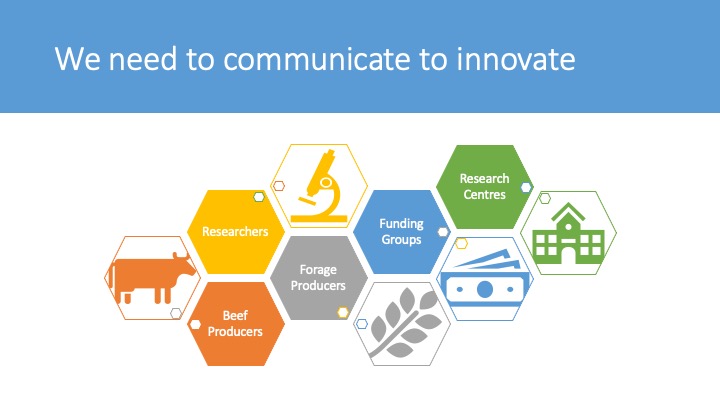Source: University of Saskatchewan, Lana Haight
Beef and forage scientists connected with farmers and ranchers via a virtual platform this week to increase their understanding of how to improve the beef and forage industries using scientific discovery and innovation.
“Also, this was a chance for researchers to hear from producers about the daily challenges we are faced with.”
Davidson and two other cattle producers provided their perspectives on research at the start of the fourth annual Beef and Forage Research Forum on Feb. 25. The event is sponsored by the Saskatchewan Cattlemen’s Association, the Government of Saskatchewan and the Government of Canada as well as the University of Saskatchewan’s College of Agriculture and Bioresources, Western College of Veterinary Medicine and Livestock and Forage Centre of Excellence. As with most events, this year’s forum moved online.
Tamara Carter, who operates Carter Cattle Company with her family near Lacadena, and Steven Pylot, who operates Bar P Land and Cattle Company with his family near Meadow Lake, also gave their ideas on how scientists could better connect their research to the farmgate. The producers talked about the financial challenges of raising beef cattle and said new ideas need to make sense practically and financially, based on where they are operating.
“Saskatchewan is a diverse province and there are so many different ways of ranching in the province. While something might work on my farm, it might not necessarily work on other producers’ farms. The panel was a really nice cross-section of different experiences across the different eco-regions of our province,” said Davidson.
Davidson and Pylot, who sit on boards that make decisions regarding research funding, also encouraged the scientists to collaborate with other scientists who have different strengths and interests in order to provide well-rounded research that tackles a problem from several angles.

For the rest of the day, sixteen scientists took turns with rapid-fire presentations identifying potential research projects based on what they have identified as gaps in the research. Each presenter was given 15 minutes and fell into one of three broad categories: environmental sustainability; animal nutrition, health and welfare; and forages. The scientists represented the University of Saskatchewan, the Alberta Biodiversity Monitoring Institute, the University of Alberta, Agriculture and Agri-Food Canada and the National Research Council.
Attendance fluctuated between 120 and 150 people including researchers, cattle and forage producers, and representatives from funding agencies and government. The “chat” box was a-buzz with all sorts of comments and ideas.
“When you saw the number of people who participated and the conversation that went on, it was an impressive event,” said Dr. Bruce Coulman (PhD), interim director of the LFCE.
University of Saskatchewan assistant professor Dr. Sean Prager (PhD) saw great value in participating in the forum. As an entomologist with an interest in integrated pest management, he has presented research findings and prospective projects to forage organizations, but it was the first time he had presented at the Beef and Forage Research Forum.
“It’s important to be on the radar of beef producers but what we do is a bit tangential. We do research that’s related to the land, but not directly related to the livestock,” said Prager.
“I want them to know that I’m here and that if problems come up, absolutely, we have the ability to start thinking about it and develop tools.”
The other benefit to attending the day-long forum is hearing what other scientists are proposing for research projects. Prager says these types of events help researchers collaborate as they better understand each other’s research priorities.








